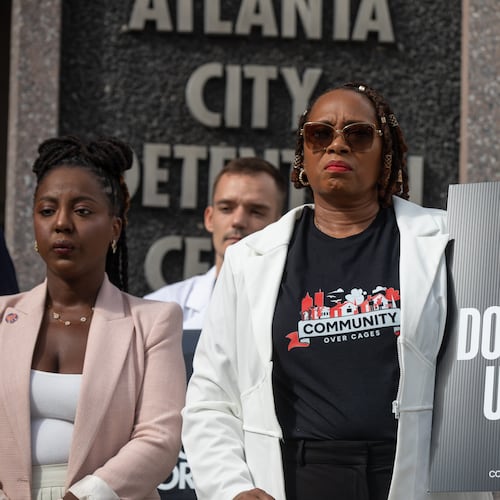Something Chris Appleton has known for a long time is that there’s an intersection between health care and the arts. And that’s where he staked his flag when he founded Atlanta-based Art Pharmacy in 2022.
The company facilitates arts experiences prescribed by health providers to aid in mental health treatment, often for seniors. Appleton, a native Georgian, said part of the company’s success is attributable to its roots in one of the Southeast’s most art-centric cities.
“The arts and culture community in Atlanta is vibrant,” he told The Atlanta Journal-Constitution. “There’s such a breadth and diversity of arts and culture organizations and programs that range from name-brand cultural institutions to front-line grassroots organizations, and we have many hundreds in our network here in metro Atlanta and Georgia. … The breadth of that network is really necessary to meet individuals where they are.”
Credit: Art Pharmacy
Credit: Art Pharmacy
That breadth facilitated Art Pharmacy’s own expansion. It’s now available in seven separate markets in seven states — and there are plans to add three additional states this year, Appleton said.
Socialization and personalization
Socialization is at the root of the effort, Appleton said, and connection with the arts supports that idea. The growing loneliness problem across the world, he contended, is closely connected with mental health, and there is a general lack of accessible support.
Art Pharmacy functions as a link between a community’s art assets, such as dance studios, museums, libraries and community arts centers, and those who need a mental health boost through social connection.
Patients receive a medical referral, which allows Art Pharmacy, as a social prescribing organization, to facilitate nonclinical, community-based activities. The difference between social prescribing and other health treatment processes is in the question the prescription answers, Appleton said.
“Social prescribing asks the question of not what’s wrong with you but what matters to you,” he said.
Subsequently, personalization plays a significant role in the care patients receive as they contribute to the choice of activities they want to participate in.
“It’s all too often the case when you get discharged from the doctor, if there’s a social health need, it’s like, ‘Here’s a piece of paper with a list of resources.’ It’s sort of ‘Good luck,’” he said. “There’s no personalization, much less precision. And so that’s been a big focus of ours.”
Credit: Art Pharmacy
Credit: Art Pharmacy
How it works
Health providers, Appleton explained, prescribe arts participation and then call that prescription into Art Pharmacy via electronic referral; most patients get 12 “doses” of arts and culture. The company’s software enables a large database with 30,000 vetted activities on one end of the platform and unique member profiles on the other.
Care navigators connect with patients who receive prescriptions to gain an understanding of their health goals and needs, as well as any access barriers like challenges with physical mobility or transportation. Partnerships with various health systems and health care-adjacent organizations allow for provision of transportation in many instances and for the participation of one companion, which Appleton pointed out, which ups the connection aspect. Revenue for the company comes through partnering health providers, and Art Pharmacy pays its arts partners for patient access, so patients participate in activities for free.
After completing a single dose, the patient is eligible to complete the same activity again or choose a new one with a goal of 12 doses over 12 months. Art Pharmacy, Appleton said, measures health factors like depression, anxiety, loneliness, and well-being in participants by collecting baseline data and then measuring it again after each arts and culture dose. The company then shares that information with referring providers so they can monitor a patient’s progress.
Competition and collaboration
Appleton’s own background — he studied creative writing at Georgia State University and then spent a career in the arts — led him to believe in the importance of a “cross-sector arts space.”
He sees Art Pharmacy as a “bridge” between cultural enrichment activities and health care and also as a way to address access barriers like affordability, knowledge of resources, transportation and physical mobility challenges, along with permission structures patients may need help navigating in order to prioritize their own health and well-being.
He advises other entrepreneurs entering the aging space to think about collaboration.
“Your competitors should be your best friends, and you should learn from them and with them, and by doing that, both your company and your competitors will be better at what they do, which is what we want to happen,” he said.
The idea of collaboration, even in an environment where there is competition, is essential to the idea of Art Pharmacy as it ties together the health care system and the arts community and drives new audiences toward the latter.
“There’s a really nice symbiosis that exists,” he said. “Artists have been healers since the beginning of humankind, in so many ways. There’s nothing new here. And artists and cultural organizations ought to be supported for the medicine and care that they’re already providing. And that’s so much we’re trying to enable.”
About the Author
Keep Reading
The Latest
Featured




